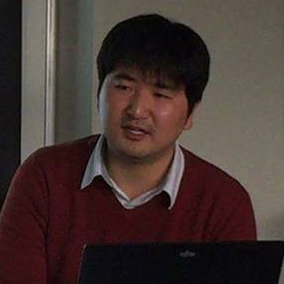TOKYO
HUMAN RESOURCES FUND
FOR CITY DIPLOMACY

Interviews with Students
Many students come from various countries and regions around the world using
the Tokyo Human Resouces Fund for City Diplomacy to study at TMU.
This page features some of the students who finished study or currently studying on the Fund at TMU (including students studied on the previous fund, Asian Human Resources Fund.)
PARK JAEHO

- Name:
- PARK JAEHO
(October 2016 – September 2019)
Graduate School of Humanities, Department of Social Welfare Doctoral Program - Nationality:
- South Korean
Your research study
-
Interview
-
Please describe your research theme in simple terms.
My main research theme is on social welfare states, social welfare politics, and particularly I’m interested in Japanese and Korean public welfare programs for the youth. A social welfare state takes responsibilities to provide citizens with social rights to pursue and realize “better-being.” Japan and South Korea should make further commitment to improve the living of citizens, departing from the national security-economy oriented ideology. If you want to make your country a welfare state, studying social welfare politics is an important task.
-
Interview
-
What would you want to achieve through your studies in TMU?
The most important thing of all for me is to finish up a doctoral thesis. The theme is to make comparison between Japanese and South Korea in social welfare programs for the youth. It is a quite new theme, I believe. The situation of employment for the youth is very unstable, with many problems such as neats and freeters. However, I don’t see that the social welfare support for the youth is enough. Young people are facing the reality that they are excluded from society. We need to come up with support programs to bring back young people in difficulty to participation in society. While working on such research study, I also want to understand more Japanese culture getting involved with professors and students.
-
Interview
-
What is the main reason for you to choose TMU as a place to research?
From childhood, I was interested in Japanese culture, dreaming about going to Japan for study someday. I graduated from the University of Seoul (UOS), which is on academic agreement with TMU. Because some of the academic staff at UOS earned their degrees from former TMU, and I was interested in the field of research that my current academic advisor is specialized in, I decided to study in TMU. I also found that the best thing about TMU Department of Social Welfare is its in-depth research in social welfare. In addition, instruction in a small class at TMU is made available, so I can receive a plenty of tutorial on my thesis from the academic advisor, which is one of the best things about TMU.
Your life in Japan
-
Interview
-
How is your daily life in Tokyo so far?
Life in Tokyo is hectic. (Laughing). Three years ago, I studied at Nagoya University, Life in there was quite different. At that time, I was biased, Tokyo was just like Nagoya, but actually Tokyo has numerous attractions as a mega polis, It is not only the center of politics and economy, but human resources and information are concentrated in this mega polis. Thanks to that, I have a lot of opportunities to get to know more researchers than in any other part of Japan. As you may imagine, I am really thrilled every time I meet new researchers. This is one of the most wonderful things about life in Tokyo.
-
Interview
-
Have you faced any cultural/customary difference that have surprised or troubled you since you came to Tokyo?
I was surprised that Japanese people followed the rules when using the trains even during rush-hours. No matter how busy they were, they never forgot to care about people around. That was also impressive for me. Besides this, Tokyo has many interesting faces. For example, it is urbanized, but it also has greenery areas like the Tama. Lately, I often find many things that are really intriguing. Lastly, I’m impressed to see disaster preparedness all around. I have never experienced earthquakes in my country, South Korea, but in Japan, people always prepare themselves against possible natural disasters.
Your role in the future
-
Interview
-
What kind of roles would you like to play between Tokyo and your home country in the future?
In the future, I’d like to work for a think-tank. Before entering TMU, I had experience of working for a Korean citizen group and university research institute, and making concrete proposals for social welfare programs. Then, I found I was weak in theory and philosophy in order to make welfare policy. While I’m studying welfare theory, philosophy and ideology at TMU, I hope I can make out my own theory, and then plan welfare programs. I also cherish to devote myself to peace in Asia. Peace is not a state of no wars, but it begins with People’s conviction of peace-keeping. In order to maintain peace in East Asia, we need to sustain people’s living with social welfare programs. This is my mission as a member of Tokyo Human Resources for City Diplomacy.

